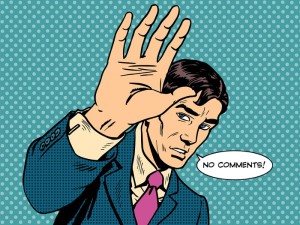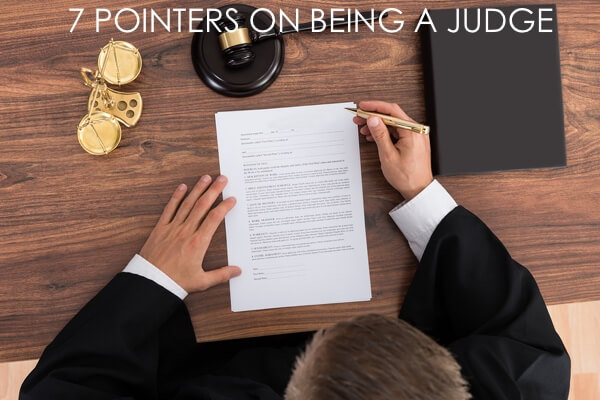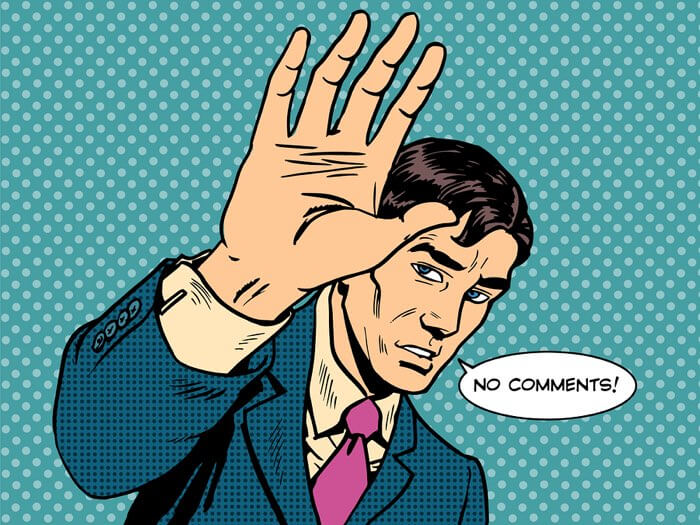When should online comments made by prosecutors rise to the level of misconduct, so that a ‘presumption of prejudice’ would likely be granted on appeal?
 A district court convicted Renee Pratt, a prominent Louisiana politician, of conspiracy to violate the federal Racketeer Influenced and Corrupt Organizations Act (“RICO”). 18 U.S.C. § 1962(d). Pratt’s conviction resulted from a thorough investigation of her long-time friend, Mose Jefferson, a well-known Louisiana community organizer and politician, as well as his family. United States v. Pratt, 728 F.3d 463 (5th Cir. 2013), cert. denied, 134 S. Ct. 1328 (2014). The Jefferson family and Pratt were accused of obtaining community-service grants, and using the money for personal gain. Id. Pratt timely appealed, citing new evidence that several prosecutors from the U.S. Attorney’s Office (“USAO”), made negative and persuasive online comments in public forums, including a local newspaper’s website, regarding her case around the time of trial. Pratt claims that the jury rendered a guilty verdict because of the disparaging and prejudicial comments.
A district court convicted Renee Pratt, a prominent Louisiana politician, of conspiracy to violate the federal Racketeer Influenced and Corrupt Organizations Act (“RICO”). 18 U.S.C. § 1962(d). Pratt’s conviction resulted from a thorough investigation of her long-time friend, Mose Jefferson, a well-known Louisiana community organizer and politician, as well as his family. United States v. Pratt, 728 F.3d 463 (5th Cir. 2013), cert. denied, 134 S. Ct. 1328 (2014). The Jefferson family and Pratt were accused of obtaining community-service grants, and using the money for personal gain. Id. Pratt timely appealed, citing new evidence that several prosecutors from the U.S. Attorney’s Office (“USAO”), made negative and persuasive online comments in public forums, including a local newspaper’s website, regarding her case around the time of trial. Pratt claims that the jury rendered a guilty verdict because of the disparaging and prejudicial comments.
Read the 5th Circuit’s Full Opinion in United States v. Pratt.
Around the time of Pratt’s filing a motion for a new trial, the United States Department of Justice (“DOJ”) conducted an investigation to determine whether attorneys working for the DOJ/USAO were making inappropriate statements online about pending cases. Office of Prof. Resp., Dep’t of Justice, Investigation of Allegations of Professional Misconduct Against Former Assistant Attorneys Salvador Perricone and Jan Mann. OPR Report at 2, (2013). The results of the investigation showed that attorneys from the Louisiana division of the USAO and DOJ “anonymously authored dozens of…online comments…posted on nola.com, the website of the widely-read New Orleans Times- Picayune.” Id. Using several pseudonyms, a senior-level prosecutor, “posted his views…of Louisiana politics…refer[ring] to Pratt’s case.” Id. While Pratt’s trial was pending, the prosecutor commented, “If Pratt walks, it’s the judge’s victory…a sad day for justice.” Id. Post-conviction, a second prosecutor, “proclaimed Pratt’s guilt, defended Pratt’s sentence, and characterized Pratt as driven by greed” on nola.com. OPR Report at 42 (reproducing comments posted in Nov. 2011).
A few months later, the district court that convicted Pratt held a limited evidentiary hearing to “develop a clearer record of any [outside] influence the anonymous comments may have had on Pratt’s trial.” Unlike a standard hearing, this ‘limited hearing’ consisted of a questionnaire submitted to two jurors who had previously identified nola.com as their source of news during jury selection. Both jurors reported no influence by the comments on nola.com. Accordingly, the district court denied Pratt’s motion for a new trial, concluding, “[there is] a lack of evidence that…the jury…was tainted by…the [online] comments.” Pratt appealed to the Fifth Circuit Court of Appeals for relief.
The Court of Appeals must determine whether the online comments made by the high-level attorneys rise to the level of prosecutorial misconduct, so that in Pratt’s case, a presumption of prejudice may be granted, relieving Pratt from the district court’s guilty verdict in her RICO case. The Court considered a Rule 33 Motion for New trial, where a court may “vacate a judgment and grant a new trial if the interest of justice so requires” and in the interest of “fairness of the trial.” Fed. R. Crim. P. 33(a); United States v. Turner, 674 F.3d 420, 429 (5th Cir. 2012) (quoting United States v. Severns, 559 F.3d 274, 280 (5th Cir. 2009); United States v. Williams, 613 F.2d 573, 575 (5th Cir. 1980).
A presumption of prejudice may be made in certain extreme cases or pre-trial publicity. Skilling v. United States, 561 U.S. 358, 381 (2010). There is no ground, however, to presume prejudice based on prosecutorial misconduct alone. In affirming a grant of a new trial, reasons for granting a new trial are “novel and extraordinary.” United States v. Bowen, 799 F.3d 336, 339 (5th Cir. 2015). For a new trial to be warranted, the court must normally find that the misconduct in question actually prejudiced the defense.” Id. at 356; United States v. Bowler, 252 F.3d 741, 747 (5th Cir. 2001).
Here, the Court concludeed that the prosecutorial misconduct—the online comments—is “too far removed from the proceedings to support a presumption of prejudice,” as the attorney who made the comment, “did not prosecute or deal with the Pratt trial,” and because, “no one from the trial team posted the comments…while the trial was underway.” Second, the Court states that rulings on Rule 33 Motions are “necessarily deferential to the trial court” in that the facts must be construed in the light most favorable to the lower court’s verdict. United States v. Wall, 389 F.3d 457, 465 (5th Cir. 2004). Lastly, the Court opined that in “certain extreme cases, pretrial publicity…can manifestly taint a criminal prosecution, [giving] rise to a presumption of prejudice.” Skilling v. United States, 561 U.S. 358, 379 (2010). The Court says that the comments made regarding Pratt’s trial were not extreme, “this is not such an extraordinary case…this…concerns a handful of anonymous, speculative postings…that lacked the kind of blatantly prejudicial information…that might poison public opinion and entitle the defendant to a presumption of prejudice.” United States v. McRae, 795 F.3d 471, 481-82 (5th Cir. 2015). Even though prosecutorial misconduct did in fact occur, the Court affirms the district court’s verdict and denies Pratt’s motion for new trial. According to the 5th Circuit, the online comments were far too attenuated to apply to Pratt’s trial and did not affect the guilty verdict.
All attorneys are bound by specific ethical protocols and procedures, promulgated and enforced by each state’s bar association. In Texas, lawyers must abide by the Texas Disciplinary Rules of Professional Conduct and the Texas Rules of Disciplinary Procedure. Texas Prosecutors are held to an even higher standard under the “Special Responsibilities of a Prosecutor” not to make extrajudicial statements that “in the course of representing a client…a reasonable person would [not] expect to be disseminated by means of public communication if the [prosecutor] knows or reasonably should know that it will have a substantial likelihood of materially prejudicing an adjudicatory proceeding.” Tex. Rules of Disciplinary Procedure §3.09; 3.07(a).

 This week I am taking a break from my Fort Worth criminal defense cases to attend a Continuing Legal Eduction at the Air Force Judge Advocate General’s School at Maxwell Air Force Base in Montgomery, Alabama. I am a reserve military judge in the Marine Corps and this is one of the annual training requirements for military judges. In one of our periods of instruction, the Chief Judge from the Court of Appeals for the Armed Forces (the highest court in the military justice system) gave us seven helpful tips on Being a Judge. I found them to be simple yet incredibly insightful. As you read these, you’ll notice that they not only apply to military judges, but state judges, prosecutors, and criminal defense lawyers as well.
This week I am taking a break from my Fort Worth criminal defense cases to attend a Continuing Legal Eduction at the Air Force Judge Advocate General’s School at Maxwell Air Force Base in Montgomery, Alabama. I am a reserve military judge in the Marine Corps and this is one of the annual training requirements for military judges. In one of our periods of instruction, the Chief Judge from the Court of Appeals for the Armed Forces (the highest court in the military justice system) gave us seven helpful tips on Being a Judge. I found them to be simple yet incredibly insightful. As you read these, you’ll notice that they not only apply to military judges, but state judges, prosecutors, and criminal defense lawyers as well.

 A district court convicted Renee Pratt, a prominent Louisiana politician, of conspiracy to violate the federal Racketeer Influenced and Corrupt Organizations Act (“RICO”). 18 U.S.C. § 1962(d). Pratt’s conviction resulted from a thorough investigation of her long-time friend, Mose Jefferson, a well-known Louisiana community organizer and politician, as well as his family. United States v. Pratt, 728 F.3d 463 (5th Cir. 2013), cert. denied, 134 S. Ct. 1328 (2014). The Jefferson family and Pratt were accused of obtaining community-service grants, and using the money for personal gain. Id. Pratt timely appealed, citing new evidence that several prosecutors from the U.S. Attorney’s Office (“USAO”), made negative and persuasive online comments in public forums, including a local newspaper’s website, regarding her case around the time of trial. Pratt claims that the jury rendered a guilty verdict because of the disparaging and prejudicial comments.
A district court convicted Renee Pratt, a prominent Louisiana politician, of conspiracy to violate the federal Racketeer Influenced and Corrupt Organizations Act (“RICO”). 18 U.S.C. § 1962(d). Pratt’s conviction resulted from a thorough investigation of her long-time friend, Mose Jefferson, a well-known Louisiana community organizer and politician, as well as his family. United States v. Pratt, 728 F.3d 463 (5th Cir. 2013), cert. denied, 134 S. Ct. 1328 (2014). The Jefferson family and Pratt were accused of obtaining community-service grants, and using the money for personal gain. Id. Pratt timely appealed, citing new evidence that several prosecutors from the U.S. Attorney’s Office (“USAO”), made negative and persuasive online comments in public forums, including a local newspaper’s website, regarding her case around the time of trial. Pratt claims that the jury rendered a guilty verdict because of the disparaging and prejudicial comments.





